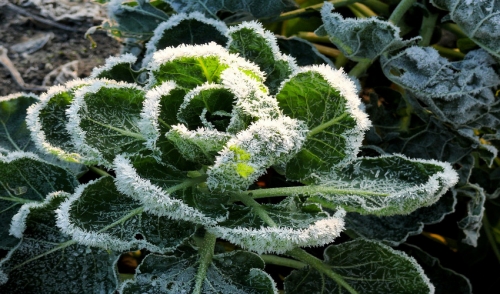
Protect Your Plants From Winter Moths
Winter moths can be destructive to a wide variety of trees and shrubs, and while they can be difficult to control, there are steps you can take to protect your crops, landscaping and plants from these nefarious insects.
The winter moth (Operophtera brumata) is a European insect that was introduced to North America in the mid-1900s, and while it has not yet become widespread throughout the continent, it can be devastating throughout New England. The moths emerge in late fall and early winter before going dormant during the harshest weather, and in spring the larvae hatch and the hungry caterpillars can quickly damage plants. The damage can be so extensive that trees become stressed and can die, or if they survive winter moths, the resulting damage makes them more susceptible to other infections and pests.
A wide range of plants can be harmed by winter moths, including oaks, maples, apple and crabapple trees, white elm, cherries, blueberries, ash trees, and roses. The caterpillars eat the buds of trees and can denude leaves, and will even munch on fruit. Signs of winter moth infestations include chewed leaves and buds as well as the presence of wingless moths climbing on trunks or branches.
Once winter moths are spotted, there are certain control measures that can be effective. Spraying the trunks and branches of infected trees with horticultural oil in late winter or early spring (when temperatures are roughly 45 degrees) can suffocate eggs so the devastating caterpillars never hatch, but do not spray any earlier or the oil will be ineffective. Insecticides that include spinosad, sevin, or neem are often effective against winter moths but can also be harmful to honeybees, so they must be used carefully. Follow all instructions properly, and avoid using the chemicals when bees are most active. Other commercial pesticides may also be effective, but should only be applied by licensed, experienced professionals.
Once trees have been treated, it is important to keep them well watered to help their recovery. Supplemental fertilization is not recommended, but they should be carefully monitored to be sure the moths do not reappear.
Winter moths can be devastating, but it is not impossible to eliminate these pests from your plants. By spotting the problem early and taking appropriate control measures, you can protect your trees and keep these invasive moths from taking over.
